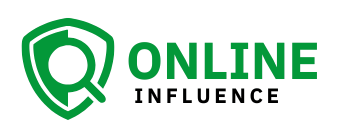In today’s diverse society, ensuring effective communication in healthcare is more important than ever. One critical aspect of this is providing sign language interpreters for patients who are deaf or hard of hearing. These interpreters play a vital role in bridging communication gaps, ensuring that patients receive the care and attention they need.
Sign language interpreters are essential in hospitals because they facilitate clear and accurate communication between healthcare providers and patients. Without them, patients who rely on sign language might not fully understand their diagnosis, treatment options, or medical instructions, which could lead to errors or inadequate care. Moreover, interpreters help healthcare providers gain a better understanding of a patient’s symptoms and concerns, enabling them to deliver more personalized and effective treatment.
The presence of a sign language interpreter for hospitals is not just a matter of convenience but a necessity for compliance with legal and ethical standards. Laws such as the Americans with Disabilities Act (ADA) require healthcare facilities to provide necessary accommodations to patients with disabilities, including access to interpreters. By doing so, hospitals not only meet legal obligations but also demonstrate a commitment to inclusivity and respect for all patients.
The demand for sign language interpreters in healthcare settings is increasing. As awareness grows about the importance of accommodating patients with different communication needs, more hospitals are prioritizing the availability of these services. This trend reflects a broader understanding of the need for equitable healthcare access and the recognition that effective communication is a fundamental component of quality care.
Despite the clear need, providing adequate interpreting services can be challenging. There is a shortage of qualified sign language interpreters, and hospitals may struggle to ensure that they are available at all times, especially in emergencies. To address this, some healthcare facilities are turning to remote interpreting services, which allow interpreters to assist patients via video calls. This approach can be particularly useful in rural or underserved areas where in-person interpreters may not be readily available.
Moreover, integrating sign language interpreters into healthcare teams requires careful planning and coordination. Hospitals need to establish efficient systems for requesting interpreters, whether in person or remotely. Training staff to understand the role of interpreters and how to work effectively with them is also crucial. By fostering a collaborative environment, hospitals can ensure that interpreters are fully integrated into the patient care process.
For more information on how healthcare facilities can improve access to interpreting services, you can visit this resource. It offers insights into the services available and how they can be implemented effectively in various healthcare settings.
In conclusion, sign language interpreters in hospitals are indispensable for ensuring that all patients receive equitable and effective care. By addressing communication barriers, these interpreters help create a more inclusive healthcare environment where every patient can fully participate in their own care decisions. As the healthcare landscape continues to evolve, the role of interpreters will remain crucial in achieving true accessibility and quality care for all.



